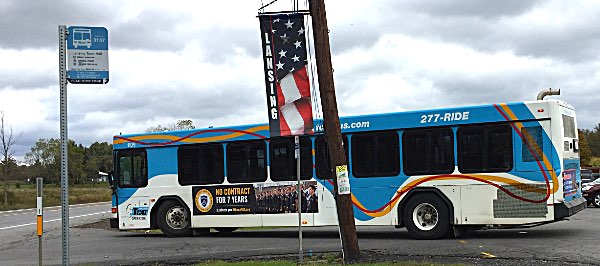- By Patty Poist
- News
 Print
Print 
Tompkins Consolidated Area Transit, Inc. (TCAT) released its comprehensive playbook January 4th, charting the course for improved, integrated and expanded public transportation in Tompkins County through the next several years.
TCAT's "Strategic Plan 2018-2030" outlines both short-term and long-term goals for the agency to be the key driver in meeting a number of challenges driven by urbanization, technological advances and higher consumer expectations for a solid and reliable network of mobility choices.
Throughout most of 2018 TCAT worked with consulting firm New York City-based Sam Schwartz City Strategies, and Ithaca-based Jean McPheeters Consulting, LLC it contracted with to develop the 100-page plan, which was officially adopted by the TCAT Board of Directors on Dec. 19.
The process involved two public brain-storming workshops, as well as intensive sessions with local and regional stakeholders, all of whom gathered together to envision the steps TCAT will need to take to be "a best-in-class" transit organization and to serve as the backbone of the area's public transportation initiatives for years to come.
The plan emphasizes six areas to include: maintaining an organizational culture of responsibility and accountability; promoting quality of service and setting service priorities; working toward sustainable capital investment; securing predictable and adequate funding; improving communications and outreach; and evolving in tandem with the ever-changing demographical and transportation landscape.
"TCAT is much more than a transit system," said TCAT General Manager Scot Vanderpool, in the document's prelude. "We are the backbone that supports connectivity among our community's evolving transportation modes. We serve as the fountain of a mobility strategy that charts a course, not only for our continued success and survival, but one that will enable Tompkins County to achieve an array of mutually agreed-upon objectives."
Frank P. Proto, who helped oversee the strategic planning process as Chairman of the TCAT Board of Directors in 2018, said the strategic plan itself is subject to evolve, one that will be "requiring periodic review, evaluation, and adaptation. This product provides us with a necessary and valuable tool, which will help TCAT achieve and continue to deliver a successful, integrated transportation system for our community."
v15i1


